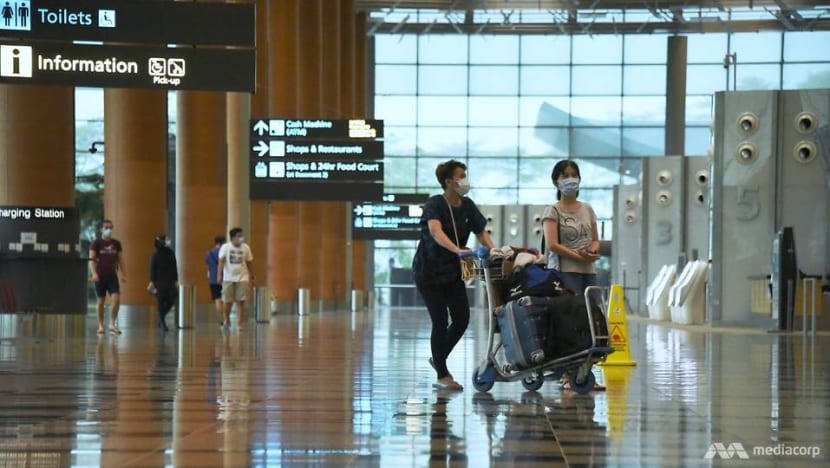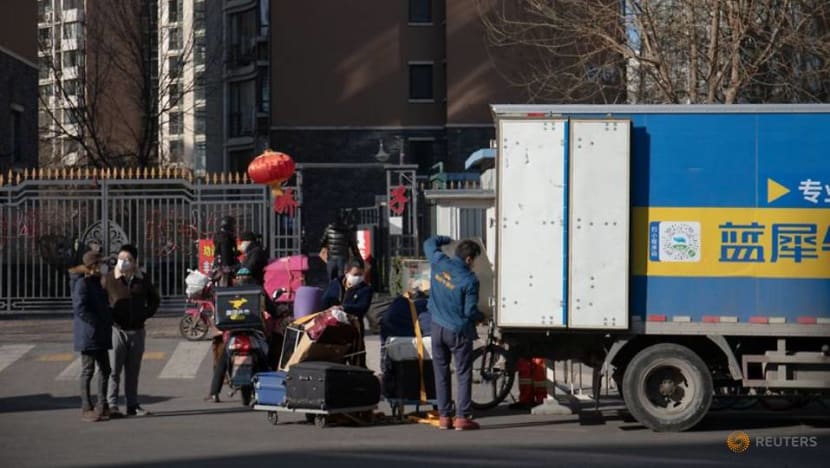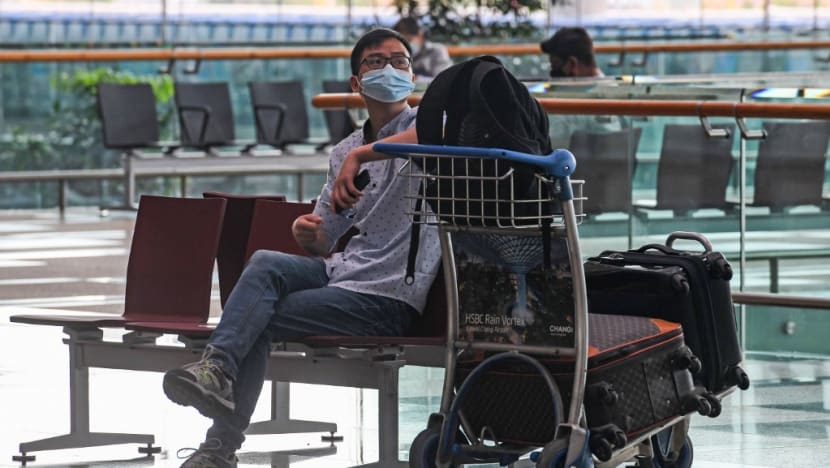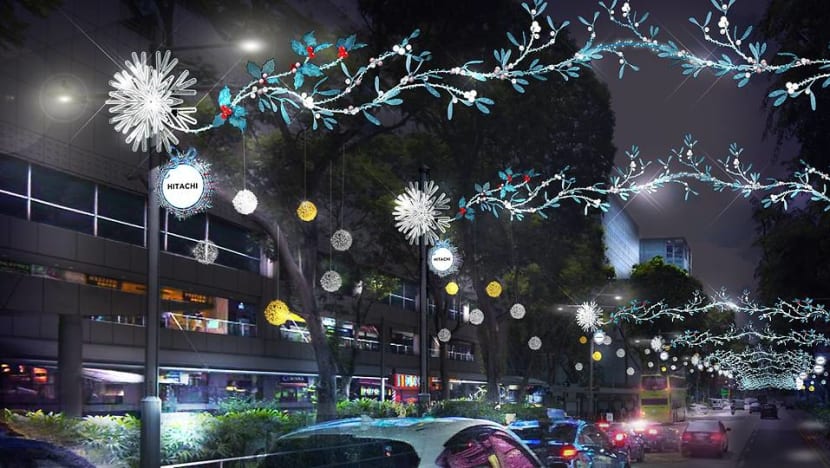commentary Commentary
Commentary: Moving to Singapore in the middle of a pandemic has changed the meaning of home
The move was disorientating but has prompted deeper reflections on what home and belonging mean, says Annisa Natalegawa.

People wearing face masks are seen at Singapore Changi Airport on Nov 2, 2020. (Photo: Try Sutrisno Foo)
SINGAPORE: A few months ago, my husband and I decided to make 2020 even more memorable and moved from Jakarta to Singapore.
Moving home, and its accompanying physical and emotional disruption, is often cited as a leading cause of stress.
A cross-border mid-pandemic move with a four-year old was a Highly Stressful Life Event - so stressful it warrants capitalised first letters.
But the move made sense for a number of reasons: A new regional role for my husband, the opportunity for me to work from my company's Singapore headquarters, and the chance for my son to grow up in one of the safest cities in the world.
READ: Commentary: A COVID-19 vaccine in Singapore? Here's what has to happen first
READ: Commentary: As Singapore gradually opens its borders, we need to be mindful of a second COVID-19 wave
Nothing about the experience could have been classified as “normal”.
Our applications were delayed for months due to the circuit breaker – once Singapore entered Phase 1 of its reopening, we took a chance and reapplied.
We were fortunate enough to receive approval a month later, but this was at a stage when Singapore was just starting to reopen its borders. There was a lot of confusion about paperwork and process.
In the end, we were left with a short three-week window to prepare. Miss that window for approved entry and we would risk going through the whole process again.
LISTEN: What next for Malaysian workers stuck there and Singapore businesses who hire them here?
PREPARING LIKE A MOTHER GOING TO THE TRENCHES
We chose a condo and school on the basis of Zoom calls and Google Map consultations – it was disconcerting to transfer deposits for places we had only seen on a screen.
We fretted endlessly when the movers came to pack - pleading that they keep their masks on despite the heat, spraying sanitiser on every surface. I prepared like a mother going into the trenches, for a two-week Stay Home Notice that took family bonding to a new extreme.
LISTEN: The Singapore property market: Is it changing for good?
But in retrospect, those were mere logistical hassles that could be overcome. Indeed, the true challenge of moving during COVID-19 was mental and emotional: It was the element of leaving Jakarta without knowing when we would be able to return.
What in the past would have been a straightforward move to a neighbouring country suddenly felt like a huge life-altering relocation.
It was sad saying goodbye to a city in lockdown, a ghost of the vibrant, tangled metropolis that it should be. When we left, several places that had been key parts of our daily life – our grocery stores, gyms, favorite restaurants, regular street food vendors – had shut down or remained closed.

My husband's office was still restricted, and he wasn't allowed access to the building to pack up his belongings. The security guard did it for him.
Meanwhile, I emptied my desk alone, my colleagues still working from home – not the way I ever imagined leaving an office I'd worked at for many years.
READ: Commentary: When Singapore homes become workspaces – huge changes in the house and beyond
READ: Commentary: I made fun of office life – and then it disappeared
CONCEPTS OF HOME UPENDED
My experience was not a unique one, but one millions of people all over the world have gone through over the past few months.
For those of us privileged enough to be accustomed to the freedom of travel - the expats, the global travelers, the diaspora - the concepts of seamless travel, home and belonging have been upended.
When borders began to close earlier this year, those of us who had the privilege of choice were forced to assess the pros and cons of remaining in a foreign country versus returning to countries of nationality.
Fear of being locked out of one's own country and the potential loss of rights, protections and freedoms, led to a wave of repatriation that few could have anticipated.

In most cases, these moves are meant to be temporary but have turned out to be much more.
I have watched friends return to the countries that issued their passports with newfound appreciation. I have seen the self-professed nomads strive to accept their clipped wings.
I know those who have opted to leave countries with better healthcare systems to be locked down with loved ones, and I know those who have chosen to stay overseas, recognising that after several years abroad, friends have become family.
READ: Commentary: I never planned to visit Hong Kong anytime soon, but the air travel bubble might change that
READ: Commentary: Our flights of fancy have stopped but were they all that romantic anyway?
A STRANGE TYPE OF HOMESICKNESS
There are those who have lost their jobs and with it their visas. There are those for whom returning home is not an option.
And there are those like me, trying to build a sense of belonging in a time of uncertainty, oscillating between feeling thankful that you were even allowed into another country in the first place, and the feeling of homesickness for a life that really only existed pre-coronavirus.
For those of us with a life previously defined by multiple geographies, it has been an ongoing process. Where do we fit in a world where physical location means so much, yet at the same time, due to incessant Zoom calls, has become irrelevant?
As we approach the end of the year and a looming holiday season devoid of festive pilgrimages home, I am expecting feelings of displacement to deepen, along with sentiments of nostalgia, loneliness and longing to see the turn of a new year, and hopefully a better year, in a place we will soon call home.

We cannot let such feelings shake our sense of self. Because the truth is that no one has felt “at home” since the pandemic began.
And while borders are gradually reopening, it will be impossible to return home to the lives we left behind, when traveling back to Jakarta on a whim, a fancy or a family emergency will not be seamless.
Ultimately, I am also learning that a sense of belonging can be derived from a physical place, but it can also be derived from a person, or a shared experience.
READ: Commentary: A home can heal in the time of coronavirus
While the simplest definition of home is the place where you live, perhaps this pandemic demands oversimplification.
Perhaps now more than ever, home must simply be the people we love, and the life we lead, wherever that may be.
Annisa Natalegawa is Partner and Managing Director of Asia Group Advisors, a government relations and public affairs consulting firm headquartered in Singapore.














